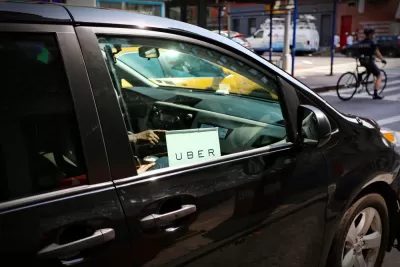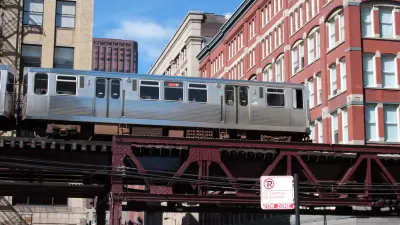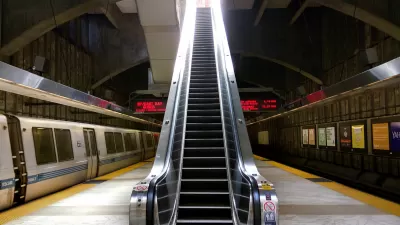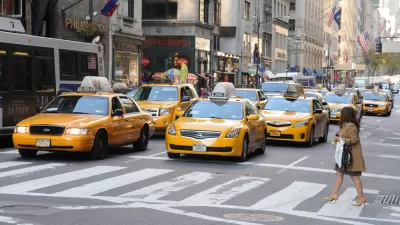Uber and Lyft say they want to improve public transit, but the focus on profit could have serious consequences.

E. Tammy Kim writes about the move by ride-hailing companies into the public transportation sector:
Uber and Lyft have been clear about their intentions. At Uber’s apex of candor, in documents filed with the Securities and Exchange Commission, it identifies a "massive market opportunity" in the estimated 4.4 trillion miles traveled by people on public transit in 175 countries in 2017.
Ride-hailing services can supplement transit and help with the "first mile/last mile problem" of getting riders to and from stations and stops, and the companies see public transit as part of their potential business growth. But the long-term outcomes could pose problems, says Kim.
Uber and Lyft have been seeking out public-private partnerships with transit systems in cities such as Denver. The arrangements have often been advantageous for them because the discounted trips are subsidized by public money and drivers remain independent contractors without public-sector employee protections or benefits.
And the financial motives of Uber and Lyft often do not always align with the goals of transit as a public service. Ride-hailing fares in general are cheaper than they should be, argues Kim, and this siphons off riders from transit while the additional vehicle miles lead to an increase in congestion and pollution.
In addition, notes Kim, Uber and Lyft are not held accountable to the public the way public agencies are. "Nor are they required to serve low-income neighborhoods or cater to the elderly, non-English speakers or people with disabilities."
FULL STORY: How Uber Hopes to Profit From Public Transit

Planetizen Federal Action Tracker
A weekly monitor of how Trump’s orders and actions are impacting planners and planning in America.

San Francisco's School District Spent $105M To Build Affordable Housing for Teachers — And That's Just the Beginning
SFUSD joins a growing list of school districts using their land holdings to address housing affordability challenges faced by their own employees.

The Tiny, Adorable $7,000 Car Turning Japan Onto EVs
The single seat Mibot charges from a regular plug as quickly as an iPad, and is about half the price of an average EV.

Seattle's Plan for Adopting Driverless Cars
Equity, safety, accessibility and affordability are front of mind as the city prepares for robotaxis and other autonomous vehicles.

As Trump Phases Out FEMA, Is It Time to Flee the Floodplains?
With less federal funding available for disaster relief efforts, the need to relocate at-risk communities is more urgent than ever.

With Protected Lanes, 460% More People Commute by Bike
For those needing more ammo, more data proving what we already knew is here.
Urban Design for Planners 1: Software Tools
This six-course series explores essential urban design concepts using open source software and equips planners with the tools they need to participate fully in the urban design process.
Planning for Universal Design
Learn the tools for implementing Universal Design in planning regulations.
Smith Gee Studio
City of Charlotte
City of Camden Redevelopment Agency
City of Astoria
Transportation Research & Education Center (TREC) at Portland State University
US High Speed Rail Association
City of Camden Redevelopment Agency
Municipality of Princeton (NJ)





























